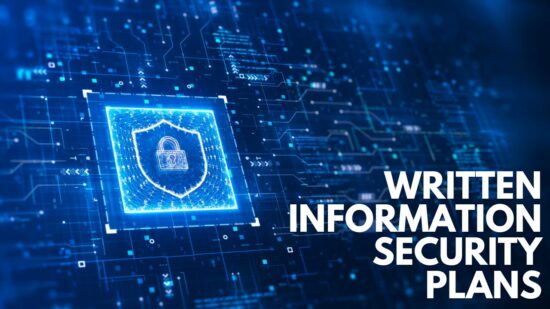NSA Releases List: Security Recommendations for Remote Work Environments
As remote work becomes increasingly popular, you must prioritize securing your digital environment. The National Security Agency (NSA) has recognized this need and released a list of security recommendations to help you protect your home network and ensure your work-from-home or work-from-anywhere experience is as safe as possible. Following these guidelines can improve your network’s security and prevent malicious cyber actors from exploiting potential vulnerabilities.
The NSA’s Best Practices for Securing Your Home Network aims to provide you with the knowledge and tools to safeguard your personal and professional information. From selecting and using collaboration services more securely to ensuring your devices and networks are configured correctly, the guidelines emphasize the importance of following best practices to minimize the risk of cyber attacks. Stay informed and proactive about your digital security is essential in today’s connected world.
What The NSA Recommends For Security For Working From Home Or Working From Anywhere
The National Security Agency (NSA) has released a list of recommendations to ensure the security of your home network while working from home or anywhere due to the COVID-19 pandemic. In this section, you’ll learn about the updated security measures you should implement to protect your network and devices.
- Update All Devices, Including Computers and Network Devices: To safeguard your devices, the NSA advises that you keep them up to date. Ensure your computers, routers, and other network devices have the latest security patches and firmware updates. This step helps to prevent potential vulnerabilities and diminish the chances of cyberattacks. Regularly check your device manufacturer’s websites for updates and enable automatic updates when possible.
- Make Sure All Devices are Backed Up Regularly: A backup plan is crucial, as data loss can harm your work. Regularly back up your important files and data using a reliable method, like cloud storage or external hard drives. Ensure that your backups are encrypted to protect them from unauthorized access.
- Limit the Administration of Your Network To Inside Your Network: One way to enhance your home network security is to limit the administration of your network to only allow access from within the network itself. Avoid allowing remote access to administrative services, as this can create an opening for potential cyberattacks. By restricting the administration of your network, you can increase its security and protect your sensitive information. Implement strong passwords for your network devices and consider using a dedicated device for administrative activities.
Remember to follow the NSA’s guidelines and instructions to secure your home network while working remotely. You can significantly reduce the risk of cyber threats during telework by consistently updating your devices, backing up data, and limiting network administration access.
Top 5 Cybersecurity Points from the NSA Executive Summary
- Keep all software updated: It’s essential to update your software regularly. Patches and updates are developed to fix known vulnerabilities and improve security features. Stay proactive in updating your operating system, applications, and antivirus software to reduce the risks of malicious cyber actors exploiting weaknesses.
- Keep routers and network security devices updated: Securing your home network is just as important as protecting the devices connected to it. Regularly update your router’s firmware to safeguard against emerging threats. Pay attention to your network security devices like firewalls and intrusion detection systems, and implement technical guidance from reputable sources to avoid potential cyber risks.
- Use a password manager and multi-factor authentication: Protecting sensitive information often starts with strong passwords. A password manager can help you generate and store complex passwords securely. Additionally, always enable multi-factor authentication (MFA) on your accounts. MFA adds an extra layer of protection, making it harder for unauthorized users to access your information.
- Separate work and life activities, separate devices from work activities and personal life: When working remotely, it’s crucial to establish clear boundaries between your work and personal life. Avoid using work devices for personal activities, and vice versa. This separation reduces the chances of accidental data leakage or exposure of sensitive information to malicious cyber actors exploiting unrelated vulnerabilities on your devices.
- Always use a VPN when connecting to the work network: Connecting to your work network without a secure connection risks sensitive information. Always use a VPN when accessing your organization’s network remotely. This ensures your data is encrypted and protected from prying eyes, keeping your personal and professional information safe.
NSA Recommendation For Physical Security In A Remote Working Environment
- Covering up webcams: When working remotely, ensuring that your webcam is covered when not in use is essential. This prevents potential unauthorized access or spying on your activities. You can use a webcam cover, a Post-it note, or even a piece of tape to cover the camera lens. This simple act can protect your privacy and prevent unauthorized individuals from accessing your video feed.
- Muting microphones or unplugging them: Just as it’s essential to cover up your webcam, it’s also important to mute your microphone or unplug it when it’s not in use. This can prevent eavesdroppers from listening to conversations or picking up sensitive information. Many devices have built-in microphones that can be muted through the device settings or a physical mute button. If you have an external microphone, consider unplugging it when it’s unusable for added security.
- Do not have sensitive conversations around always-on devices: In today’s interconnected world, many devices – such as smart speakers and virtual assistants – always listen for voice commands. Be cautious of discussing sensitive information around these devices, as they may inadvertently record or transmit your conversation. If you need a private discussion, consider moving to a different room or temporarily disabling these devices’ microphones. By following these simple steps, you can protect your privacy and maintain the security of your remote working environment.
- IoT Devices Being Used As Cyber Attack Vectors: As you work from home or anywhere, you must be aware of the potential security risks of Internet of Things (IoT) devices. These devices, which include cell phones, smart watches, smart locks, and various home appliances, can serve as cyber attack vectors that malicious actors can exploit to access your personal or work-related data.
To prevent a breach, you should follow the NSA’s released best practices for securing your home network. Here are some key recommendations:
- Change default credentials: Many IoT devices have default usernames and passwords, which cybercriminals can easily access. Be sure to change these default settings to unique, strong credentials.
- Keep software and firmware up to date: Manufacturers periodically release updates that fix vulnerabilities in their devices. Ensure your devices run the latest software and firmware to protect them from known exploits.
- Disable unnecessary features: IoT devices often have extra features you may not need or use. Disabling these features reduces the attack surface and limits potential entry points for intruders.
- Use strong encryption and secure protocols: When setting up wireless networks, use strong encryption such as WPA3 and secure communication protocols like HTTPS to protect your data.
In addition to these general practices, the IoT security landscape includes specific threats and attack vectors you should be familiar with. To protect your devices and data, consider the following mitigation measures:
- Implement network segmentation: Separate your IoT devices from your main network to limit the potential damage from a compromised device. This can be done through virtual local area networks (VLANs) or separate Wi-Fi networks.
- Ensure physical security: Prevent unauthorized access to your IoT devices by placing them in secure locations and properly securing external access points such as ports or cables.
Taking these proactive steps can significantly reduce the risk of IoT devices being used as cyber attack vectors and help protect your data and privacy while working from home or anywhere.
NSA And “Unsocial Networks”
- Limit sharing of personal information: When using social networks, be cautious about how much personal information you share. Avoid posting details such as your home address, phone number, and other sensitive data. This will reduce the risk of identity theft or unauthorized access to your personal and professional accounts.
- Only contact people you know: It’s crucial to only interact with people you know on social networks. Be cautious when accepting new friend requests or followers. Cybercriminals often use fake profiles to gather information about potential victims or gain access to your network.
- Be On The Lookout For Duplicate Social Network Accounts: Keep an eye out for any duplicate accounts in your name that you didn’t create. This could indicate someone is impersonating you to access your information or network. If you discover a duplicate account, report it to the social media platform and take steps to secure your legitimate account.
- Disable Or Delete Social Media Accounts not in use: Inactive social media accounts can be a goldmine for cybercriminals. If you no longer use an account, consider disabling or deleting it to reduce your digital footprint. This will decrease the chance of your information being compromised through an old or unmonitored account.
| Social Media Platform | How to Disable/Delete |
|---|---|
| Go to Settings > Your Facebook Information > Deactivation and Deletion | |
| Go to More > Settings and Privacy > Account > Deactivate your account | |
| Go to Profile > Settings > Privacy and Security > Delete Your Account |
Following the NSA’s recommendations for “unsocial networks,” you can reduce the risk of security breaches and protect your home network when working remotely.
How BACS Consulting Group Works With Corporations To Support Their Work From Home Or Work From Anywhere Strategies
When you collaborate with BACS Consulting Group, you partner with a team of experts focusing on transforming IT consulting and ensuring a secure work environment. Their approach includes cybersecurity consultation and services tailored to meet your organization’s remote work or work-from-anywhere requirements.
To support your teleworking strategies, BACS Consulting Group offers the following services:
- Secure Remote Work Environment: They prioritize creating and maintaining secure remote work environments to protect your company’s sensitive data. By understanding the unique security challenges of remote work, BACS helps you implement robust security measures.
- Cybersecurity Consultation: BACS provides expert advice on safeguarding your systems and networks against cyber threats. We comprehensively assess your existing security infrastructure and identify vulnerabilities that need to be addressed.
- Employee Training and Support: Ensuring your employees are well-trained and aware of cybersecurity best practices is crucial for maintaining a secure remote work environment. BACS offers training programs and support to empower your employees and make them more resilient against cyberattacks.
- Regular Security Updates and Audits: BACS Consulting Group understands the importance of staying up-to-date with cybersecurity trends and measures. They conduct regular security audits and provide updates to keep your remote work environment secure and compliant.
By working with BACS Consulting Group, you benefit from their expertise in creating and managing secure remote work solutions. Their comprehensive approach to cybersecurity ensures that your organization can confidently and safely embrace teleworking and work-from-anywhere strategies.







